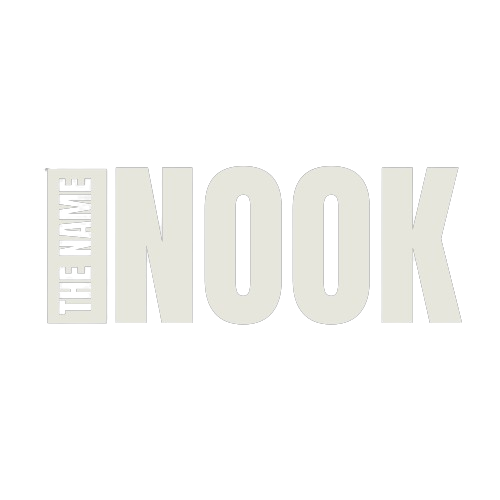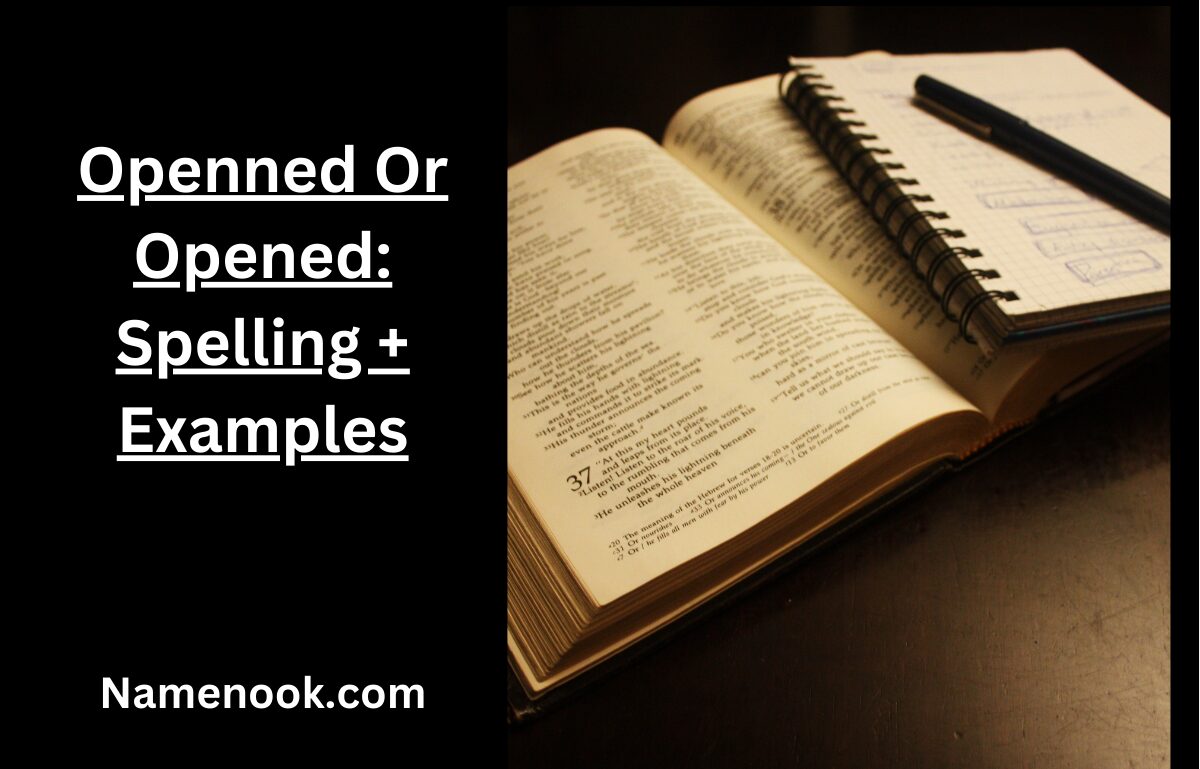Opened vs. Openned: What’s the Right Spelling?
Spelling in English can be tricky—even for native speakers. One word that often trips people up is the past tense of “open.” Is it opened or openned? If you’ve ever found yourself second-guessing this, you’re not alone. Let’s clear it up.
✅ Which One Is Correct?
The correct spelling is “opened.” It’s the simple past and past participle of the verb “open,” used when something has been made accessible or started.
Example:
“She opened the door to let in the fresh air.”
On the other hand, “openned” is a common misspelling. It’s not recognized in standard English and should be avoided.
📌 Why Do People Write “Openned”?
Many people mistakenly double the “n” based on how the word sounds. But in English, we usually only double the final consonant when the word ends in a vowel + consonant combo and the last syllable is stressed—like in “admit → admitted.” “Open” doesn’t follow that pattern, so you simply add -ed to get opened.
✏️ Why Spelling Matters
Using the wrong spelling—like “openned”—can make your writing look unpolished or unprofessional. This is especially important in:
-
Academic writing
-
Business communications
-
Job applications
-
Professional emails
Getting it right shows attention to detail and builds trust with your audience.
💬 Examples of “Opened” in Action
Here are some real-life examples of how “opened” is used correctly in different settings:
-
At home: “I opened the window to let in a breeze.”
-
Emotionally: “He finally opened up about his feelings.”
-
At work: “We opened a new office downtown.”
-
In tech: “The app opened without crashing after the update.”
-
In sports: “The game opened with a stunning goal.”
-
In art: “The exhibition opened with a striking installation.”
❌ The Problem with “Openned”
Even though it might look right at first glance, “openned” is always incorrect. It doesn’t follow English spelling rules and can easily distract or confuse readers—especially in professional or technical writing.
📚 In Business, Tech, and the Arts
In business and tech, precision is everything. For example:
-
Correct: “The team opened negotiations last week.”
-
Incorrect: “The team openned negotiations last week.” (looks sloppy)
In literature and art reviews, “opened” can set the scene or mood:
-
“The story opened with a powerful image.”
-
“The gallery opened to a full crowd.”
🎉 In Events and Sports
Clarity matters just as much in event coverage and sports commentary:
-
“The festival opened with fireworks.”
-
“The tournament opened last night with a thrilling match.”
These examples show how “opened” helps clearly convey action and timing.
✅ Final Takeaway
If you’re ever in doubt, remember this:
✔ “Opened” is correct.
❌ “Openned” is not a real word.
Sticking to proper spelling—especially with common words like “opened”—makes your writing stronger, clearer, and more professional.
Why Using the Right Words Matters—Especially in Sports and Events
Spelling errors can hurt your credibility, especially in fast-paced environments like sports commentary or event reporting. A simple mistake like writing “openned” instead of “opened” can confuse your audience and make your work look less professional. That’s why it’s important to stick to correct, clear language at all times.
❌ Why “Openned” Isn’t a Real Word
In English, regular verbs form the past tense by simply adding “-ed.” Since “open” ends in a vowel followed by a consonant, we just add -ed to make “opened.” There’s no need to double the “n.”
So, to be clear:
✔ Correct: opened
❌ Incorrect: openned
🎧 Why the Mistake Happens: The Sound Trap
Many people spell based on how words sound rather than how they’re supposed to be written. “Openned” might sound right when spoken, but it doesn’t follow any English spelling rule.
🧠 Common Reasons Behind Spelling Mistakes
-
Phonetics: Spelling what you hear instead of what’s correct
-
Lack of Reading: Less exposure to correctly written words
-
Typos: Simple keyboard mistakes that go unnoticed
Knowing these reasons can help you become more intentional about spelling.
✍️ How to Improve Your Spelling and Avoid Mistakes Like “Openned”
If spelling trips you up, don’t worry. There are practical ways to get better:
1. Read Often
The more you read, the more familiar you become with correct spelling.
2. Use a Dictionary or Spell Checker
When in doubt, look it up. Don’t guess—check.
3. Practice Writing
Write journal entries, essays, or even short notes daily to build spelling confidence.
4. Learn Spelling Rules
Understanding when to double consonants—or not—can prevent many common errors.
5. Ask for Feedback
Have someone review your writing. A second pair of eyes often catches what you miss.
6. Use Spelling Apps or Games
Turn learning into something fun. There are many online tools to practice spelling interactively.
7. Create Flashcards
Make flashcards of words you frequently get wrong, and review them often.
8. Join a Writing Group
Collaborating with others helps you improve and stay motivated.
🔁 Synonyms for “Opened” to Add Variety
Want to mix things up in your writing? Try these alternatives, depending on context:
-
Unsealed
-
Unlocked
-
Revealed
-
Unwrapped
-
Accessible
-
Exposed
Each carries a slightly different tone or meaning, so choose the one that best fits your sentence.
📚 Understanding Verb Tenses for “Open”
-
Base form: open
-
Past tense: opened
-
Present participle: opening
-
Past participle: opened
These forms are essential for writing clear and grammatically correct sentences.
Example (past perfect tense):
“By the time we arrived, she had opened all the gifts.”
🔄 What’s Another Way to Say “Opened Up”?
Looking to vary your language? Try:
-
Unlocked – for physical things
-
Revealed – for secrets or emotions
-
Expressed – in conversations
Example:
“He finally opened up about his struggles.”
🗣️ What Does “Open To” Mean?
The phrase “open to” means being receptive or willing. It’s often used in conversations or professional settings.
Example:
“I’m open to feedback on this project.”
🧩 Common Phrasal Verbs with “Open”
-
Open up – to start sharing emotions
-
Open out – to expand or spread
-
Open onto – when one space leads into another
✅ Final Thoughts
Mastering spelling—especially with commonly used words like “opened”—makes a big difference in how others perceive your writing. Whether you’re writing for school, work, or just for fun, attention to detail builds trust and makes your communication clearer.
Don’t let small mistakes like “openned” hold you back. With consistent practice and the right tools, you can improve your spelling and write with confidence.

